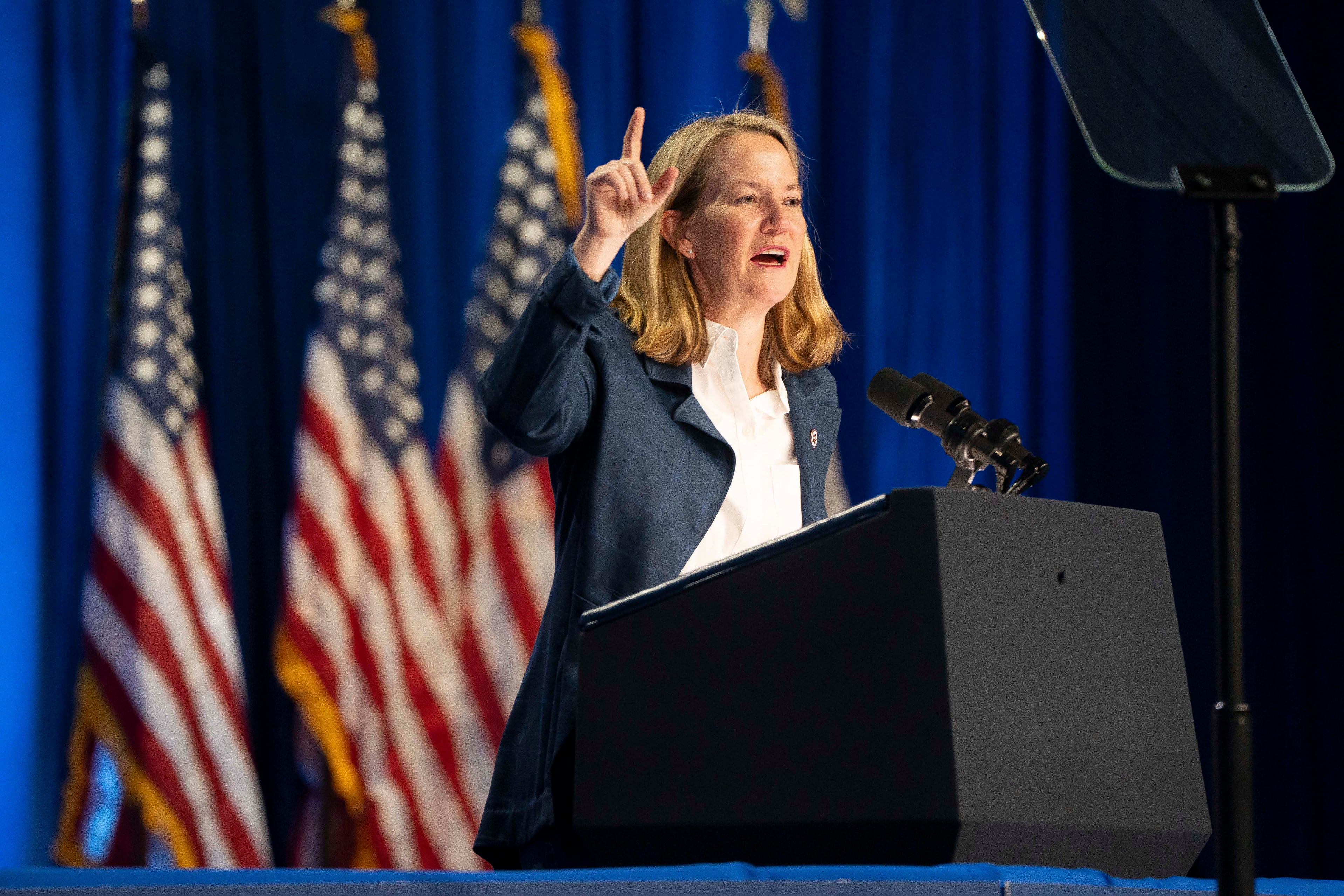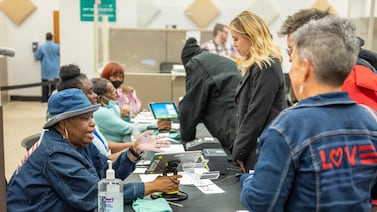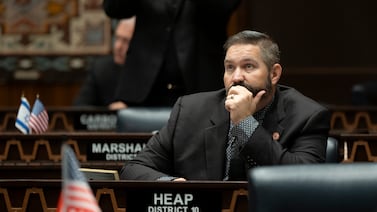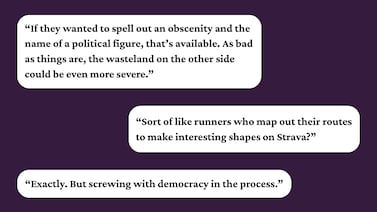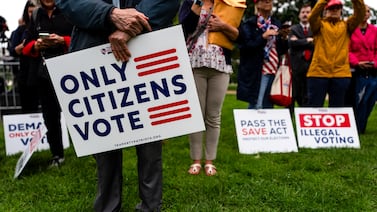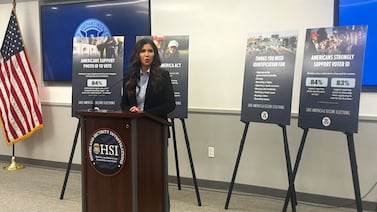Votebeat is a nonprofit news organization reporting on voting access and election administration across the U.S. Sign up for Votebeat Arizona’s free newsletter here.
Arizona voters who were caught up in a state error tracking citizenship should keep their full voting rights, according to Arizona Attorney General Kris Mayes.
Her opinion, issued Monday, marks a turning point in the debate among officials over how to handle the eligibility of the roughly 200,000 voters, who were erroneously listed in state records as having provided proof of U.S. citizenship even though they hadn’t been asked to. Arizona requires such proof to vote in state and local elections, and counties have been sending notices to voters to try to collect the information.
Mayes, a Democrat, said county recorders cannot legally suspend these voters’ registrations or make them eligible only for federal elections if they now fail to respond to these notices.
“If an Affected Voter responds by providing such evidence, that should dispel doubt,” Mayes wrote. “But if an Affected Voter does not respond, the mere lack of response does not, under current law, authorize the county recorder to cancel the voter’s registration, in whole or in part.”
It’s unclear whether county recorders will follow Mayes’ opinion, which is meant to advise officials but does not have the force of law, according to the Attorney General manual.
Election officials, including the county recorders who manage the state’s voter rolls, have been grappling with what to do about the voters since last summer, when state officials announced that for about 20 years, the state had failed to request citizenship proof from some voters when they registered to vote. The error affected voters who received their Arizona driver’s license before October 1996, but who registered to vote — including reregistering after moving across county lines — at some point after 2004.
Secretary of State Adrian Fontes, a Democrat, advised county recorders earlier this year to limit these voters to voting only in federal elections, for president and Congress, if they didn’t prove their citizenship.
But some recorders and county attorneys disagreed with this legal opinion. A few argued that county officials didn’t have the authority to change the voters’ eligibility at all, while others argued that counties should suspend the voters registration altogether until they received the documentation. This led to disparate treatment for voters across the state, Votebeat first reported in April.
Citing Votebeat’s reporting, Fontes on May 6 asked Mayes to issue a formal opinion. In response to Mayes’ opinion, Fontes said he appreciates her guidance on how to resolve the issue, and he had been “very concerned” about these voters losing their right to vote a full state ballot.
“The consistent treatment of voters caught up in this situation between counties is most important to ensure everyone’s voting rights are protected,” he wrote in a statement. “I am glad we now have a clear path forward.”
When the error was first announced last summer, Republican and Democratic officials and leaders came together and asked the Arizona Supreme Court to issue a ruling that would put the issue on hold until at least after the November 2024 presidential election. The court agreed and ruled that recorders should not touch the voters’ eligibility before then. But it didn’t issue clear guidance on what to do after that.
Mayes wrote that she believes state law gives recorders the authority to cancel voter registrations only if they have confirmed the voter is not a U.S. citizen, but not for missing documents proving citizenship.
Alex Gulotta, Arizona state director for voting rights group All Voting is Local praised Mayes’ ruling. “Any action that prevents longtime eligible voters from being improperly removed from the voter rolls is good for voters and good for our democracy,” Gulotta said.
Jen Fifield is a reporter for Votebeat based in Arizona. Contact Jen at jfifield@votebeat.org.

